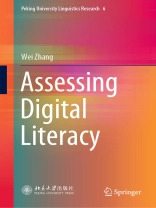This book introduces the design and implementation of an assessment model for a new university-level English curriculum in China that aims at developing digital literacy skills. The assessment approach, embedded in the curriculum of an online modular course at Peking University, requires the students to conduct semester-long digital research projects in English in their major fields of study. Combining quantitative and qualitative methods, evaluation rubrics built around Content, Clarity, and Creative/Critical Thinking were developed, evaluated, and refined over three implementation cycles (eight semesters). The book presents a systematic assessment design framework, a set of effective rubrics for evaluating the digital research project, and authentic examples of written and multimedia presentations by Chinese students. Integrating assessment with instruction and technology, the book provides a valuable practical guide to digital literacy assessment for English education in the Outer and Expanding Circle contexts.
Tabla de materias
Chapter 1. Assessing English literacy in a digital age.- Chapter 2. Designing Doing English Digital.- Chapter 3. Developing evaluation rubrics.- Chapter 4. Evaluating the stability of rubrics.- Chapter 5. Evaluating the effectiveness of rubrics.- Chapter 6. Discussion.
Sobre el autor
Wei Zhang, Ph D (Columbia University), is Professor of English in the English Department at Peking University, China. She has published internationally on topics including Chinese English, language and gender, and multilingual and digital literacy in journals such as
Discourse & Society, Journal of Pragmatics, and World Englishes. She was a visiting professor at Nanyang Technological University, Singapore (2016). She currently serves on the editorial boards of
Computers & Composition, Linguistic Research, and World Englishes.












